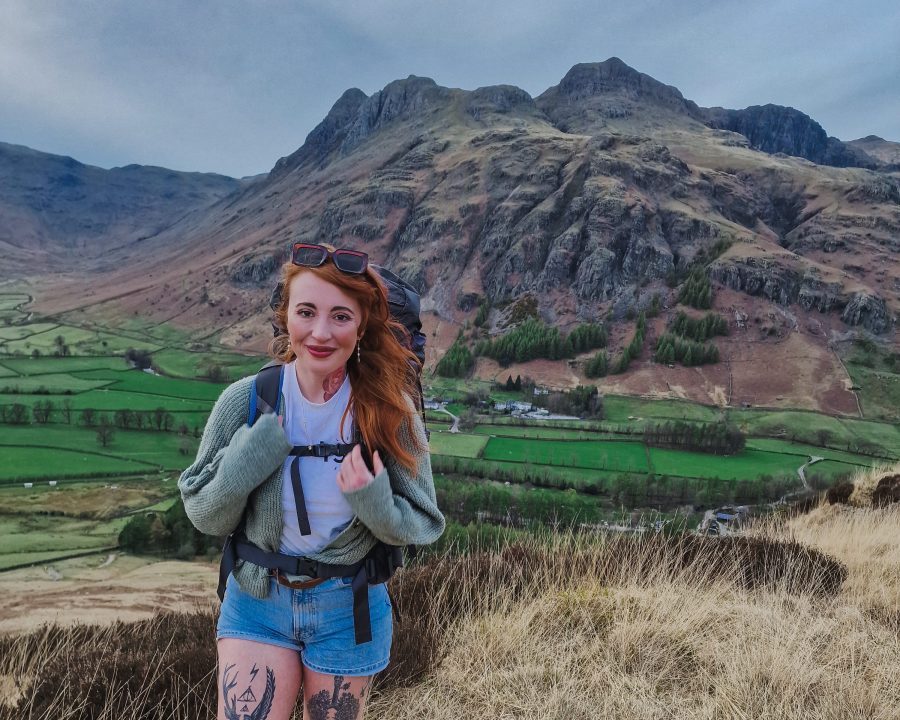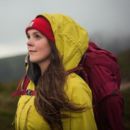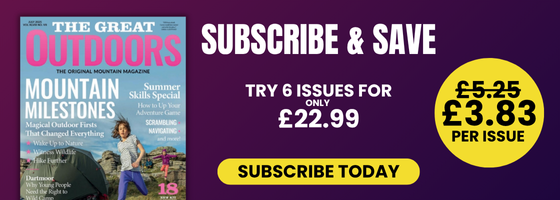Our Creator of the Month, Kate Appleby is our guide to her Lakeland home and her mission for better adaptive adventure to enable everyone to get outdoors.
Founder of Adaptive Adventurers, Kate Appleby is using her own experience to create better space for more people to heal through adaptive adventure outdoors. Here, Kate talks to The Great Outdoors about how the fells became her saviour when an attempt on her own life “felt like the only viable option” and why it’s vital that others are able to access and enjoy outdoor spaces where they can heal.
Main image: Kate in her element in Lakeland. | Credit: Kate Appleby
Did you discover the outdoors as a happy place growing up in Lakeland?
I was born and bred in the Lake District. I had a complicated up bringing and family life that took me away from the Lake District and I vowed to return as soon as I could. Once I had completed university and got my career moving, I came back to the lakes, now some eight years ago and rediscovered my happy place. My relationship with the lakes isn’t quantifiable – its deep and complex, it’s truly life affirming.
Do you have any favourite spots you return to time and time again?
I often say that, for me, home isn’t a place. It’s a feeling. And being in the Lakes proves just that for me. It’s doesn’t matter where I am, from the beautiful Buttermere to the gentile Grange Over Sands, Cumbria is home. It’s littered with a lifetime of memories and adventures.
It seems your have your fingers in every proverbial outdoor pie from climbing to swimming to biking to hiking – is there a particular outdoor activity you go to most often or do they serve you in different ways?
I joke at my own expense that I’m a jack of all trades and master of none. The wide variety of my activities is so helpful to me because it covers my whole scale of ability depending on how physically well I am on a given day. If it’s a bad symptom day, then a gentle paddle board or swim will be on the agenda with climbing or thru-hiking reserved for higher energy times. My hobbies feel like friends – having many is to have different people to hug, to support you, to comfort you.
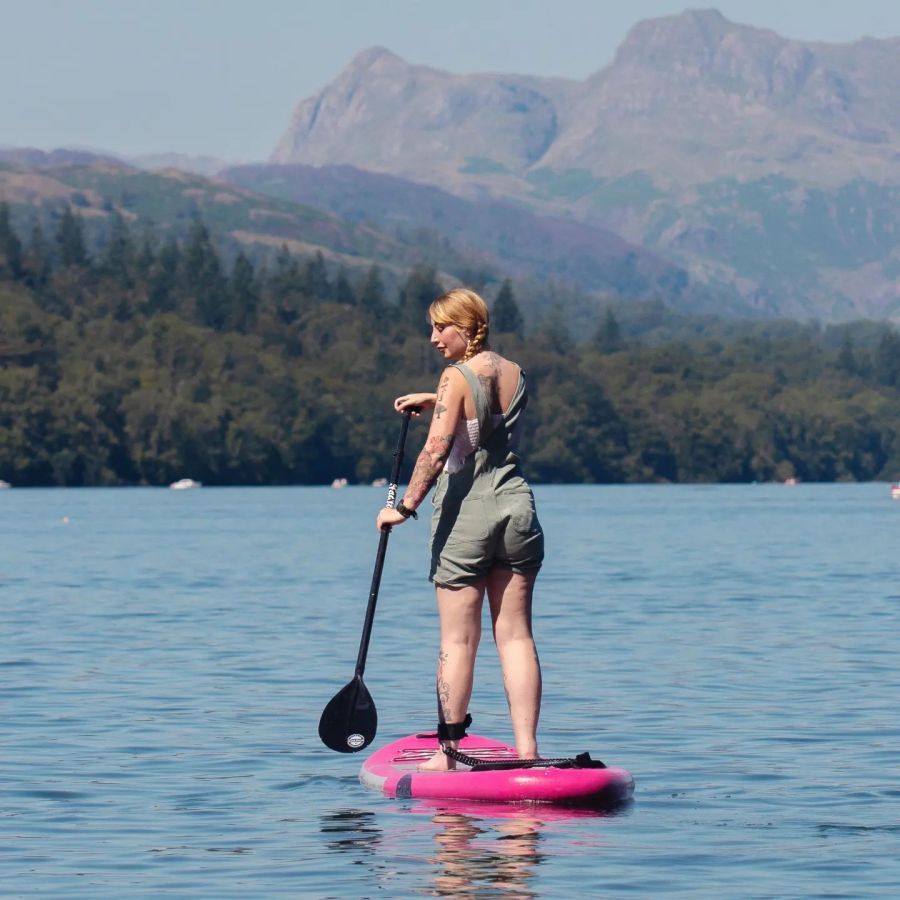
Lakeland is the perfect place for a paddle.
Credit: Kate Appleby
How do you find the time to feed your soul with adventure and fit it all in around work?
I’m so often asked about balance, and one of the biggest assumptions about me is that I don’t have a day job – on the contrary I work full time, run a charity, a business and my own brand. I’ve always been determined to make sure I never get to the point where I talk more about adventure than actually do the adventures myself – for me the mental health benefits I experience from outside time aren’t just helpful, they’re essential.
Structuring my life around acknowledging that necessity means that I don’t compromise on my down time. I think if you want something hard enough, you’ll work for it and so I’ll find ways of working through lunches, starting early, working later, whatever it might be to ensure that my time remains just that.
As someone who lives with invisible illnesses, how does the outdoors help you both mentally and physically?
As I’ve been vocal about previously, the outdoors saved my life. After an abusive childhood, facing a Lupus diagnosis in my teens felt like the final straw and an attempt on my life felt like the only viable option. When that failed, the outdoors became my saviour.
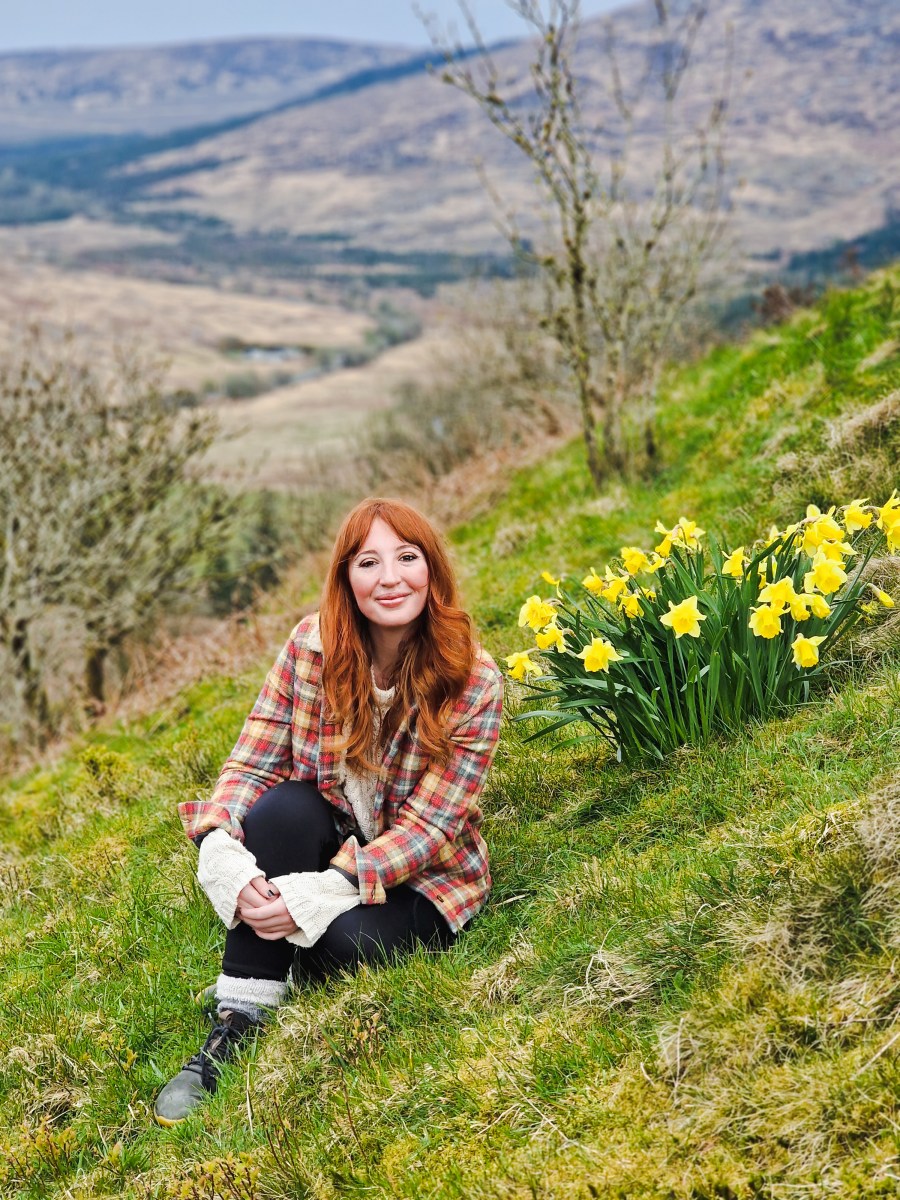
Kate Appleby among the daffodils on Scottish hills.
Credit: Kate Appleby
From tiny acorns of small walls outside, to the oak trees of the feats and challenges I complete now, over the next 10 years I worked hard to turn my back ok the pain of previous chapters and let the outdoors in, to heal and hold.
Of course, it’s not always simple, and balancing complex physical health conditions alongside this can be hard. I’ve learnt when the right time to succumb or the right time to push through is. I’ve learnt when to challenge, and when to accept.
Can you share your diagnoses and the impact the symptoms have on your adventures?
I was diagnosed at 16 with SLE Lupus. Diagnoses followed of Raynaud’s, Sjrogen’s, Asthma, and more recent PoTS. Symptoms for me include join pain, chronic fatigue, frequent infections, migraines, digestive issues and so on. One of the biggest challenges is the scale of differences day on day brings.
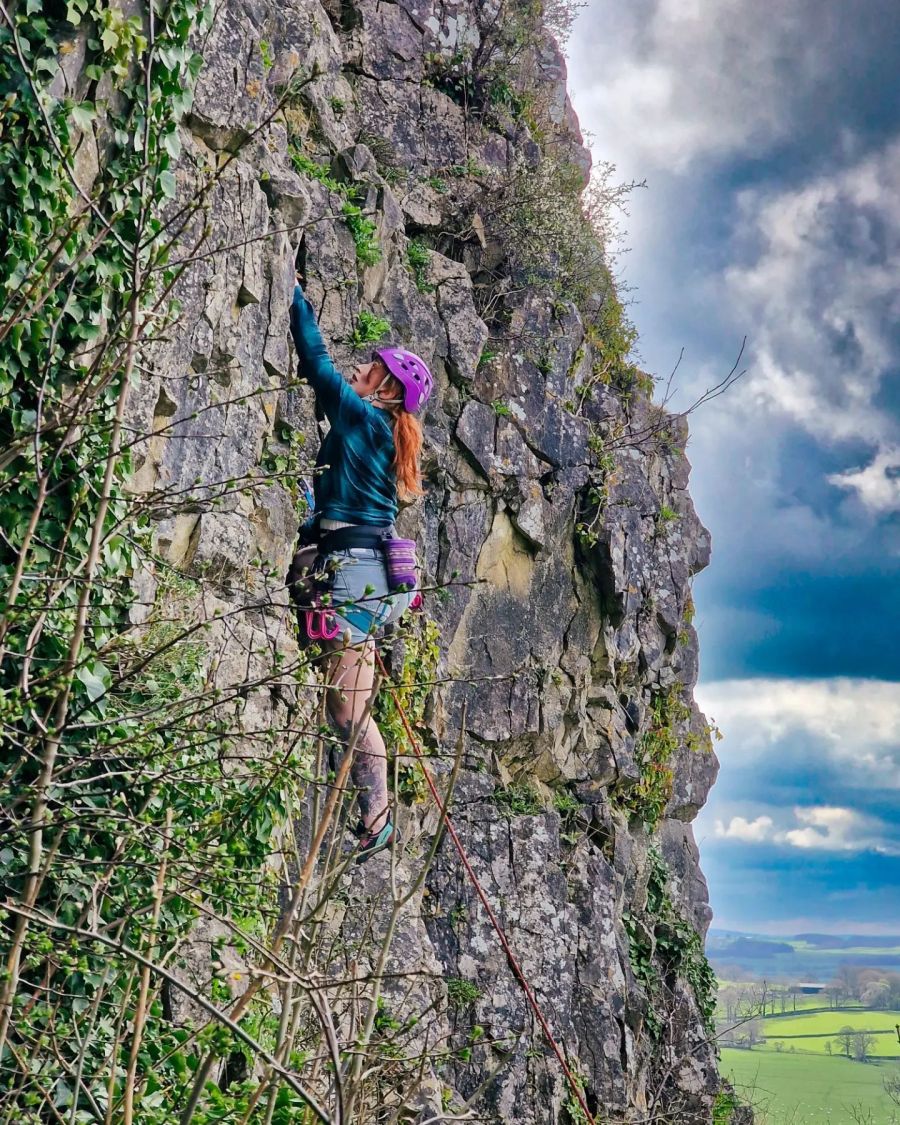
The Cumbrian crags provide ample challenge on high-energy days.
Credit: Kate Appleby
From the ability to scale mountains one day, to being unable to get out of bed the following, keeping up with that rollercoaster is as challenging as it is isolating – and expecting friends and loved ones to keep up is equally challenging. I’ve learnt to adapt each and every adventure around my needs that day. It’s hard to continually risk assess and adapt but it’s needed.
What of the extra considerations you have to take to enjoy the outdoors safely and happily?
Extra considerations for me look like taking extra kit like more layers and fluids, and a bigger first aid kit, too. I carry all my medication and with that, I often take a tens machine to help with the pain that will come on during an adventure. I’m highly photosensitive too, so taking precautions to avoid too much light exposure is important.
If I’m heading out alone, telling people where I’m going and when I should be back is important, as well as making sure I have the right comms equipment with me. I’m also conscious of planning routes that have good exit routes should I need to bail, and am mindful of routes that have mobile blackout spots too.
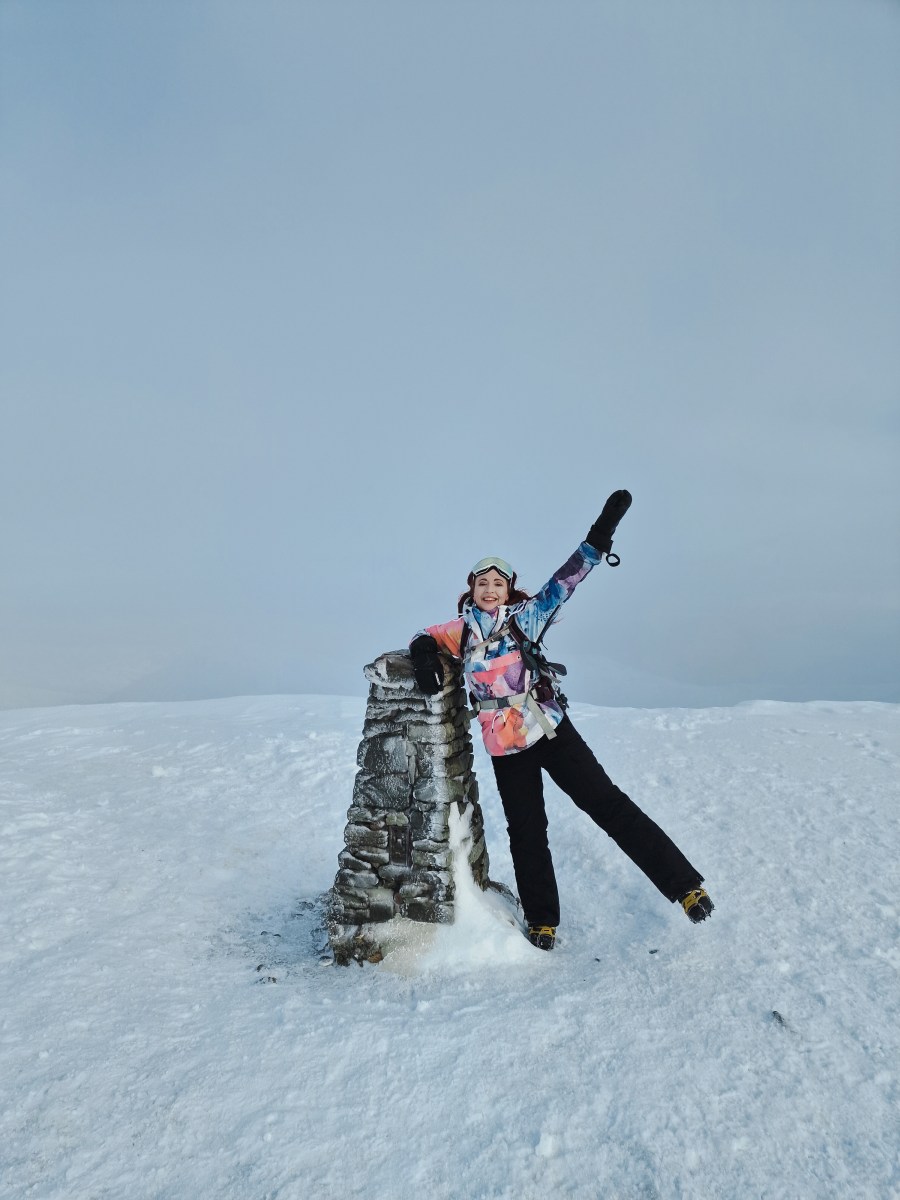
Kate on Helvellyn.
Credit: Kate Appleby
What would you say are the biggest obstacles to making the outdoors more accessible in the Lake District?
I’ve been consulting with the NPA via my social enterprise Adaptive Adventurers to ensure this issue is addressed and so far our views have been widely welcomed. We’re talking about things like access to toilets, hard standing disabled parking, gates over stiles, improved pathing and so on. The biggest challenge is stakeholder engagement and making sure enough people are engaged to make and support our work. As you can imagine change takes time and money and both are limited.
What else do you hope to achieve through the Adaptive Adventurers social enterprise?
Adaptive Adventurers was founded in 2023 arising from a need of removing some of the barriers preventing folk from accessing the outdoors. We have three pillars; a grant scheme designed to support folk in overcoming barriers, a community bringing people together to find support at events and online and through advocacy too – making changes to remove those barriers in the first place.
My aim is to try and become a powerful force in consultancy and community – helping both empower individuals but also engage organisations and company in meaningful change, too.
You can follow Kate on her adaptive adventure @kate.s.appleby and through Adaptive Adventurers.

